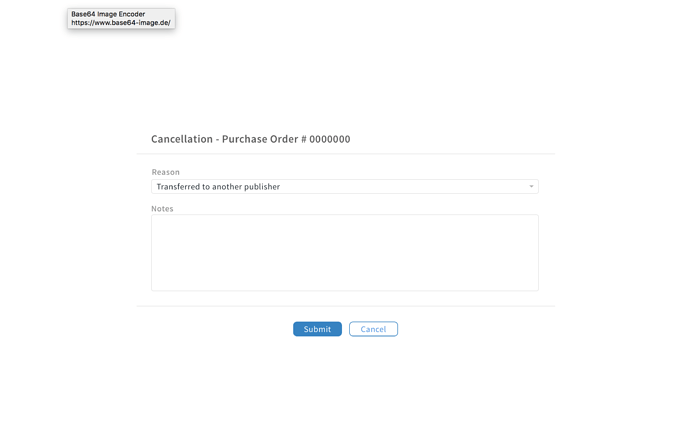I was been brought to our attention that when cancelling an order we need to be able to capture additional details in order to prevent reword and provide valuable information for reporting.
This is a mockup of the model that will allow you to add context when cancelling an order.
Note: the system will also capture the user id of the user making the cancellation.
The list of cancellations is as follow, but please feel free to share your thoughts.
Ceased, Transferred to another publisher, Merged with another title, Split into other titles, Lack of funds, Lack of use, Duplication, Unresponsive vendor, Licensing terms (unacceptable), Low quality, Unpreferred format
The JIRA issue for this feature is UXPROD-722






